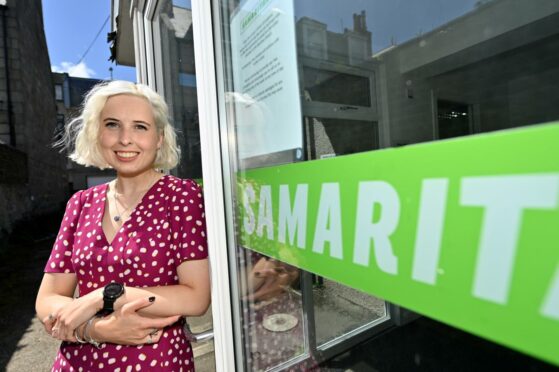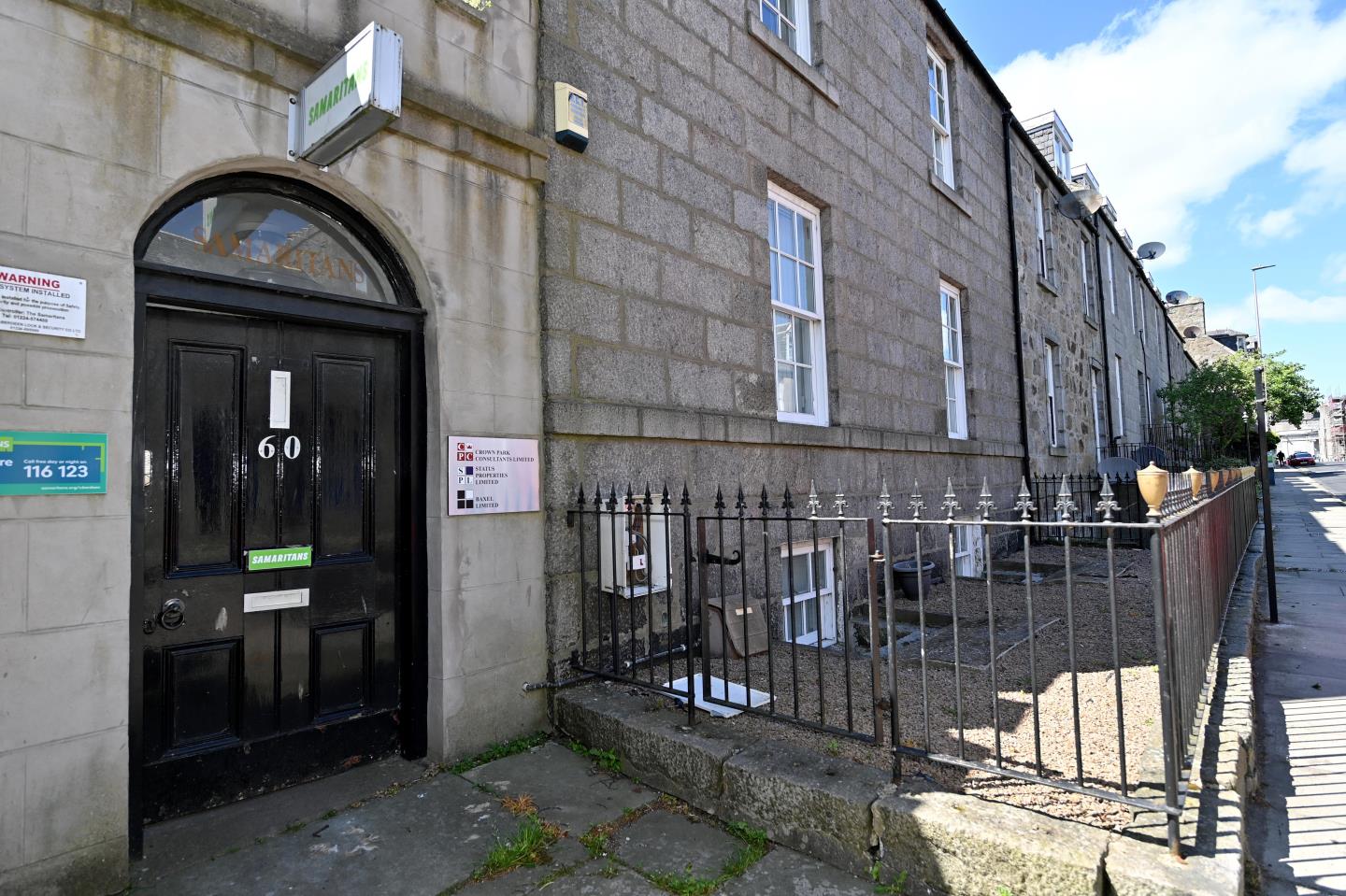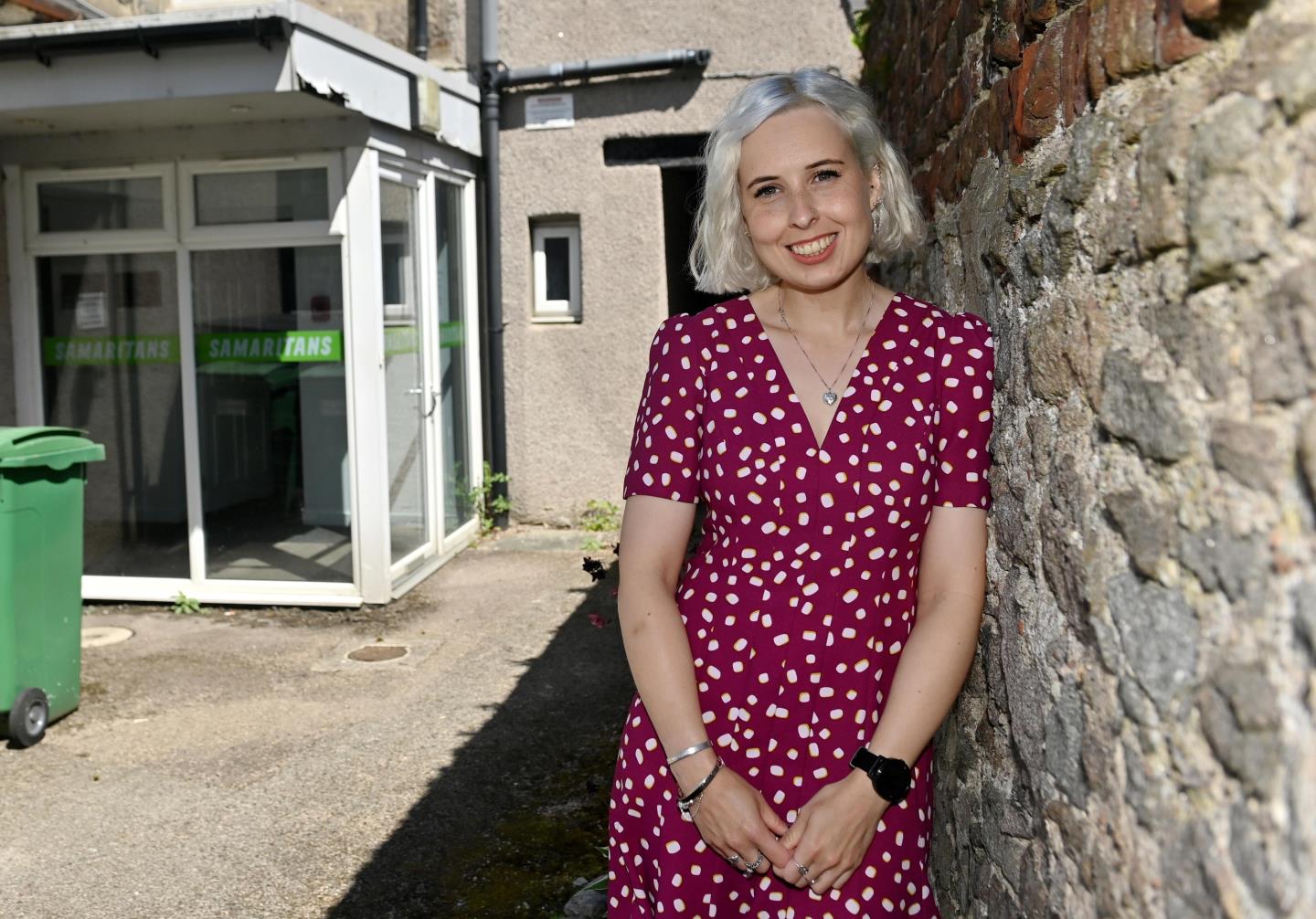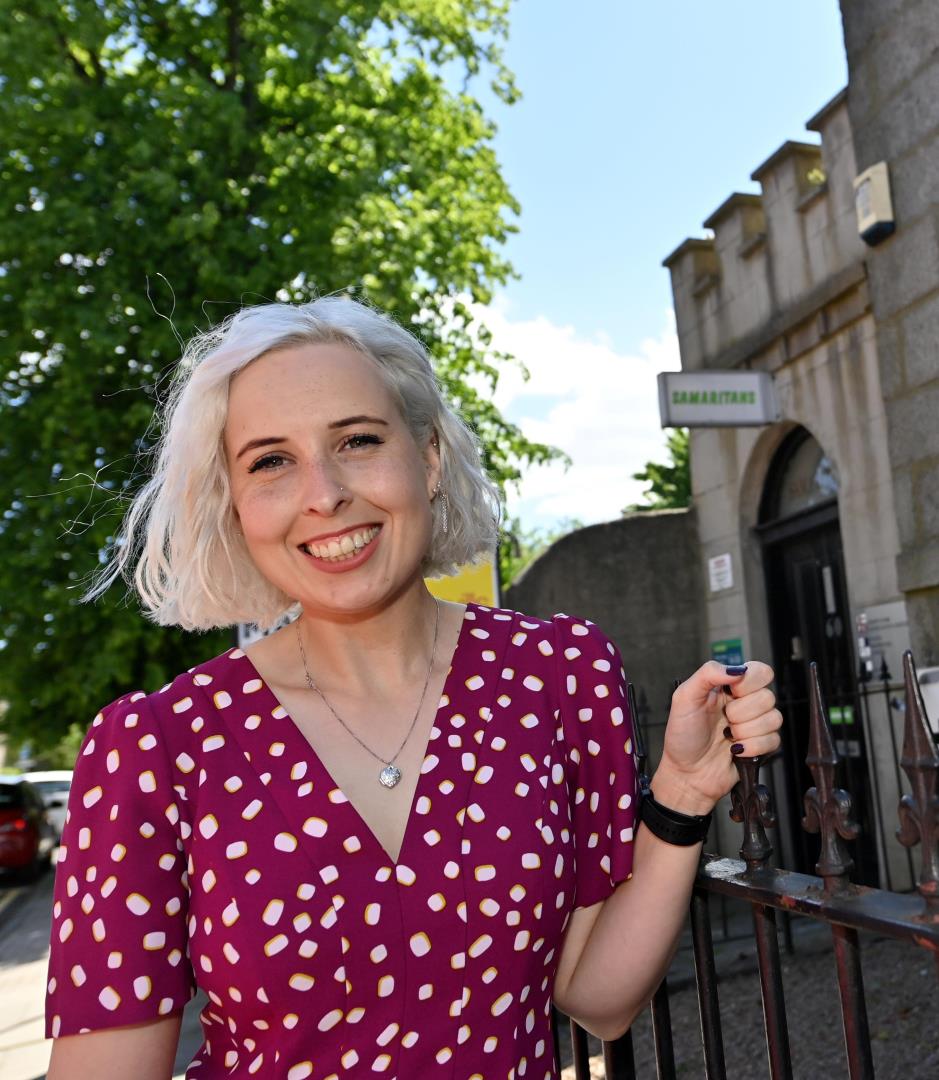While Samaritan’s main mission is to reduce death by suicide in the UK, they are also there to listen, day or night, if you have anything playing on your mind – just call 116 123.
For over 60 years, Aberdeen Samaritans has been providing support to those across the country in any form of distress or despair, not just people struggling with suicidal thoughts.
Constantly looking to improve their approach and help as many people as possible, the Samaritans branch in Aberdeen currently works with over 80 volunteers of all different ages and from a variety of backgrounds.
As well as those you speak with on the phone, there are support volunteers who help with the overall running of each Samaritans branch. Those who deal with the charity’s finance, maintenance and IT all do so voluntarily.
How does Samaritans continue to provide such effective support?
Fiona Cochrane has been volunteering with Aberdeen Samaritans for over a decade, since she graduated from university in 2010, and believes the service they provide remains effective as it has evolved over the years.
“Our core principals are still there, they haven’t changed, but our accessibility to callers has improved,” she explains.
“Over time, we have changed the way our phones connect in order to reduce the engage rate; we now spread out calls to different branches across the UK to limit the waiting time for callers.”
Samaritans are constantly looking to increase and enhance the ways in which they offer support. Fiona, 33, says: “We have an email service and, pre-Covid, we had a lot of opportunities for people to get face to face support, which we hope to continue soon.”
Throughout the pandemic, Samaritans have been offering outdoor support out-with their branches where possible and, now that restrictions are easing and summer festivals are on the horizon, they hope to revisit their work at large scale events.
“Volunteers are listening trained and some have festival training, meaning we can set up tents at festivals and offer a safe space to provide emotional support,” says Fiona.
Samaritan’s core principals
Since Samaritans began in 1960, the charity has always ensured their services provide:
· Confidentiality
If people feel safe, and in no danger of being identified by those they know, they are more likely to open up about how they truly feel. Sharing thoughts confidentially can be freeing for callers; it can feel like a weight has been lifted, without the fear of worrying others in your life.
· A non-judgemental space to talk
Samaritans wants people to be able to talk without the fear of prejudice or rejection. Volunteers are trained to listen and guide conversations without injecting any of their personal opinions into the dialogue.
· Self determination
Samaritans believes that people have the right to find their own solution and that telling people what to do takes responsibility away from them. It can also make people less likely to follow through with a decision if they feel it was not made on their own judgement.
Why volunteer with Aberdeen Samaritans?
By working with a charity like Samaritans, you are given the opportunity to develop your listening skills, become more empathic and meet like-minded people from completely different walks of life.
Fiona says: “I started volunteering with Aberdeen Samaritans in my early 20s; I’ve always been passionate about using my spare time to help others and, as I had just finished university, I had time to commit.
“After researching the charity, I thought their unique service was absolutely fantastic and I wanted to be a part of it.
“I met my best friend at the training and absolutely loved the whole process. I now see volunteering at Samaritans as a big part of my life.”
Each volunteer must commit a minimum of three hours a week to the charity, and complete what is known as a “Twilight Shift” (a three hour night-shift; for example, midnight-3am) once a month.
Before you begin shift work, however, there is a thorough training programme; you are assigned a mentor, there is ongoing training and mentoring throughout the year, and you always have the support of a shift leader on every shift you complete.
“We are always so well supported within the Aberdeen branch; you never volunteer alone, even during nightshifts. There will always be someone else in the branch to talk to if you feel you need support after a call,” explains Fiona.
“To feel you are making a difference to even one person’s life is incredibly rewarding and I use the skills I have developed at Aberdeen Samaritans in so many other aspects of my life.
“I am so glad to be a part of this team.”
If you feel you are struggling, you can call Samaritans for free on 116 123 (it won’t show up on phone bills), day or night. To find out how you can seek other methods of support – or volunteer at a Branch near you – visit the Samaritans website.



